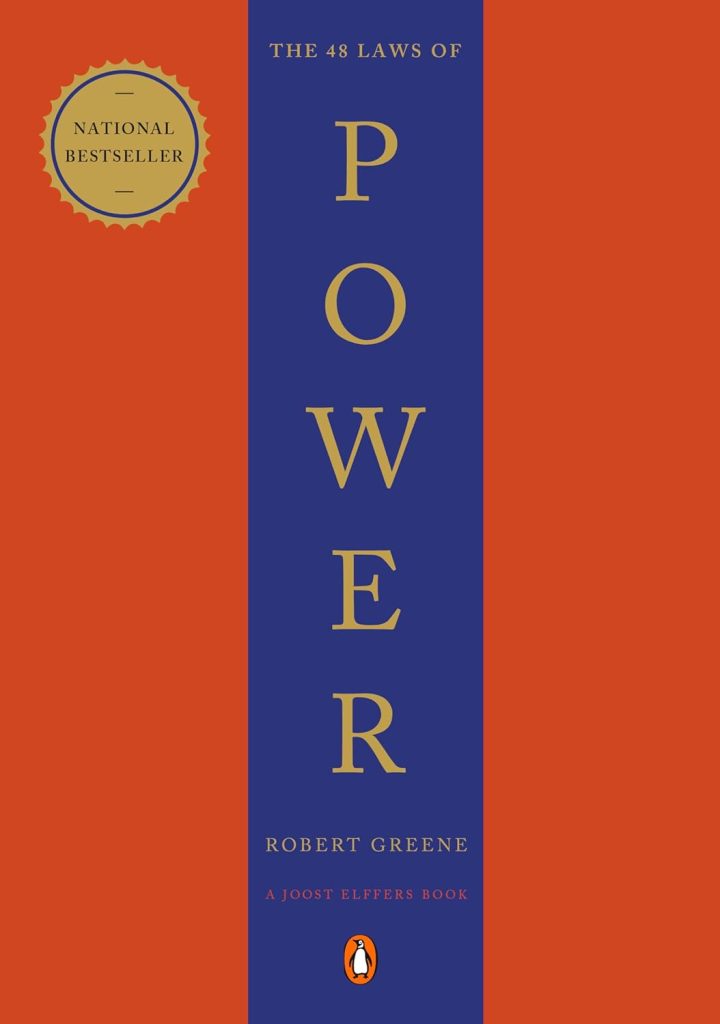“The 48 Laws of Power” by Robert Greene is considered controversial for promoting manipulative tactics. Some believe it fosters unethical behavior and undermines moral values. Critics argue its principles could lead to exploitation and harm. Consequently, some institutions ban it to discourage negative influences on behavior and relationships.

Why Is The 48 Laws of Power Banned?
“The 48 Laws of Power” is not officially banned in most countries. However, certain institutions, such as prisons and some educational institutions, have banned or restricted access to the book due to its controversial content and perceived potential to manipulate or exploit others.
The book presents strategies and principles derived from historical and contemporary figures known for their power and influence. It explores tactics such as manipulation, deception, and coercion, which some critics argue could be used unethically.
Here are some reasons why “The 48 Laws of Power” might be banned or restricted:
- Manipulative Content:
The book provides advice on how to gain and maintain power, often through strategies that involve manipulating others. Critics argue that promoting such tactics could be harmful, especially if individuals use them unethically or to exploit others.
- Ethical Concerns:
Some readers and institutions may have ethical concerns about the principles advocated in the book. They argue that the focus on power dynamics and manipulation goes against principles of fairness, honesty, and integrity.
- Potential for Abuse:
Certain organizations, such as prisons or rehabilitation centers, might ban the book to prevent inmates or individuals undergoing rehabilitation from learning tactics that could be used to exploit others or disrupt the rehabilitation process.
- Controversial Figures:
“The 48 Laws of Power” talks about how to gain power using examples from people in history who were really determined to get power, like Niccolò Machiavelli and Napoleon Bonaparte. Some may find these figures morally objectionable. It leads to calls for restrictions on the book’s availability.
- Negative Influence:
Critics argue that the book’s emphasis on power dynamics and manipulation could have a negative influence on impressionable readers, especially young people or those lacking critical thinking skills. Banning the book in certain settings may be seen as a precautionary measure to prevent such influence.
- Perception of Dangerous Ideas:
The book’s content has been perceived by some as promoting potentially dangerous ideas, particularly if readers misinterpret or misuse the principles outlined in the book.
While “The 48 Laws of Power” has faced criticism and occasional bans in certain contexts, it remains widely available in most bookstores and online platforms. However, its controversial nature continues to spark debate about the ethics of power and influence.
Why Is The 48 Laws of Power Banned In Prison?
“The 48 Laws of Power” gets banned in prisons because it’s seen as a risky book. In prison, where there’s already tension, the ideas in this book could make things worse. The book talks about how to get power over others, and prison officials worry that inmates might use these ideas to cause trouble. They’re concerned that inmates might use the strategies from the book to manipulate or control others, leading to fights or other problems in the prison.
Also, some people think that this book could stop inmates from trying to change for the better. Instead of focusing on becoming better people, they might focus on gaining power over others, which isn’t helpful for anyone. So, by banning “The 48 Laws of Power,” prisons hope to avoid more conflicts and help inmates focus on positive changes instead.
Overall, the decision to ban the book in prisons is often based on concerns about its potential negative influence on inmate behavior and institutional safety. However, it’s worth noting that opinions on whether the book should be banned vary, and some argue that banning it infringes on inmates’ rights to access information and make their own choices about what to read.
Is The 48 Laws of Power banned in America?
No, “The 48 Laws of Power” is not banned in America; it remains widely available for purchase and consumption. However, it has been banned in some US prisons due to concerns about its potential to incite manipulation, violence, or disruptive behavior among inmates.
While it’s true that some libraries or educational institutions might choose not to carry it due to its content or approach, there’s no nationwide ban on its distribution or sale. In fact, its availability in bookstores and online platforms is a testament to the freedom of expression and the market’s acceptance of diverse viewpoints, even controversial ones.
While the book has sparked controversy and criticism for its Machiavellian approach to power dynamics, banning books in America is a rare occurrence and typically only happens in extreme cases involving legal issues such as obscenity or incitement to violence. “The 48 Laws of Power” does not meet these criteria and therefore remains legally accessible to those who wish to read it.
Is The 48 Laws of Power Banned in Schools?
“The 48 Laws of Power” is not universally banned in schools, but its presence in educational settings has generated controversy and debate. Its availability in educational settings is contingent upon the policies of individual schools or districts.
Some educators view the book as a valuable resource for understanding human behavior and power dynamics throughout history, while others may find its content controversial or inappropriate for certain age groups due to its emphasis on manipulation and Machiavellian tactics.
In some cases, schools may choose not to include “The 48 Laws of Power” in their curriculum or libraries due to concerns about its influence on students’ ethical development or because it conflicts with the school’s values or educational objectives. Additionally, parental objections or community standards can influence whether a book is allowed in school settings.
While there may be instances where “The 48 Laws of Power” is restricted or banned in specific schools or districts, it is not universally banned across all educational institutions. Ultimately, decisions regarding its inclusion or restriction are typically made at the local level by school administrators, educators, and governing bodies.
Watch It to Learn about The 48 Lawy of Power:
The Bottom Line
Whether one supports or opposes the banning of “The 48 Laws of Power,” one thing is clear: it’s got people talking. It has ignited a firestorm of discussion. From boardrooms to book clubs, people are confronting uncomfortable truths about power dynamics and human nature.
It makes us think about how power works and what people will do to get it. In a world hungry for knowledge and understanding, the allure of forbidden fruit only serves to amplify curiosity. Thus, maybe the most compelling reason to read this banned book isn’t just because it’s controversial, but because it gives us a chance to think differently and talk about important issues like power in our society.



Pingback: Why People Think 48 Laws of Power Is Evil - Books in Brain
Pingback: Is 48 Laws of Power Worth Reading - Books in Brain
Pingback: What Are The 48 Laws of Power - Books in Brain